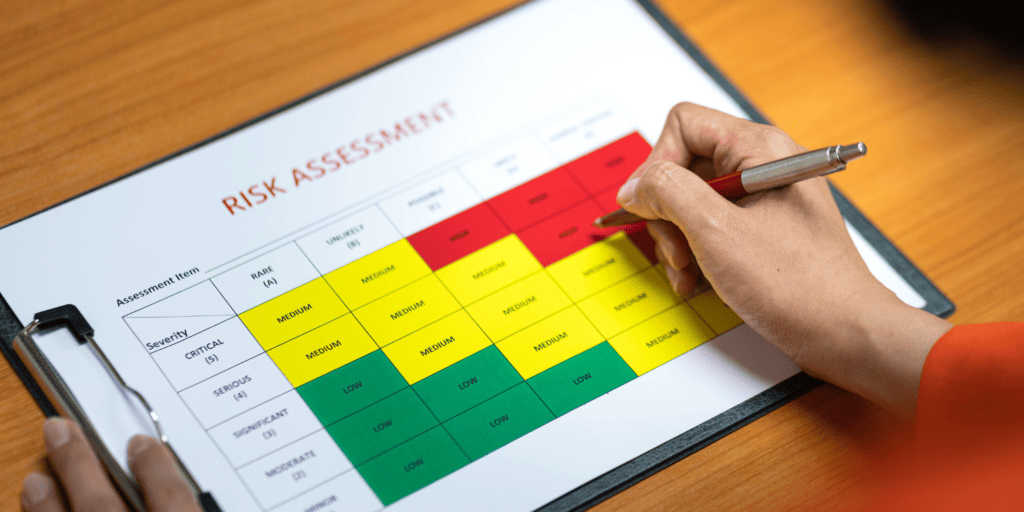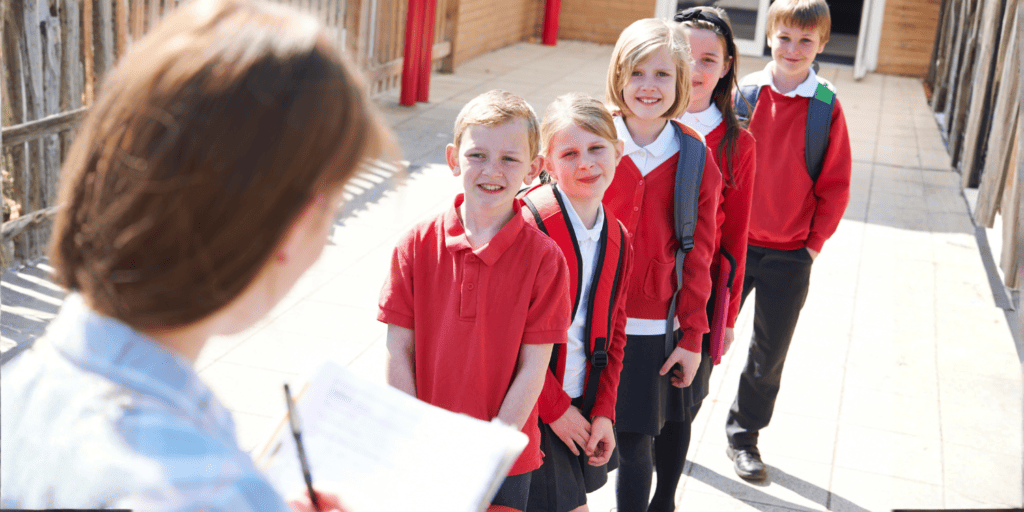
School trips are exciting and valuable learning experiences — but they also introduce unique school trip safeguarding risks. From local outings to overseas residentials, schools have a duty to keep every child safe, supported, and supervised throughout.
This blog explores what that means in practice, from planning and risk assessments to consent, medical responsibilities, and emergency response.
This post is part of our Safeguarding and Child Health: Essentials for Every Setting series. If you missed the earlier blogs:

Staff roles must be clearly defined. Educational Visit Coordinators, trip organisers, and Designated Safeguarding Leads (DSLs) all play vital roles:
Training and clarity on responsibilities are key to avoiding confusion during critical moments.

Risk assessments are a non-negotiable step in school trip safeguarding planning and must be proportionate, practical, and reviewed prior to each trip. They help to identify and manage risks, protect pupils and staff, and demonstrate that safeguarding duties have been considered.
They should comprehensively cover:
These expectations are supported by Health and Safety on Educational Visits guidance from Gov.uk, which encourages a proportionate and practical approach.
Schools should also maintain accurate records of trip plans, risk assessments, and parental consent forms. This record-keeping is essential for safeguarding accountability and inspection readiness.

Imagine this:
During a coastal school trip, a pupil with asthma starts wheezing severely. The inhaler is in a staff member’s bag at the front of the group. Do staff:
Inadequate preparation in these moments isn’t just a policy failure — it’s a medical emergency. That’s why every staff member needs training in clear emergency response protocols and delegated responsibilities. With the right preparation, teams can act swiftly and confidently, turning a potential crisis into a well-managed situation.

All schools must ensure:
Special care is needed for:
These scenarios require additional planning, risk assessments, and safeguarding checks to ensure that every child’s needs are met, both physically and emotionally.

Health Academy provides two specific e-learning options:
School Trips Training (for organisers & support)
Covers planning, health and safety, trip delivery, and residential logistics.
School Trips for Management
Ideal for SLT and DSLs, this course outlines legal duties, cost management, and trip governance.
These courses are CPD-accredited and support staff to plan confidently and safely.
Safeguarding doesn’t stop at the school gate. With thoughtful planning, strong communication, and clear responsibilities, school trips can be safe, enriching experiences for every pupil.
Trip leads and SLT should regularly review training needs and policies—making sure every trip is underpinned by safeguarding best practice.
This School Trips Training Course is for the person who organises a school trip or for anyone who helps out, these people may also be known as an Educational Visits Coordinator. It takes a practical look at some of the things which must be considered when planning and delivering school trips, both in the UK and abroad.
This training programme is for a School Management Team - the people in a school who are responsible for school trips. It's all about making sure that school trips are carefully planned, appropriately risk-assessed and well managed.
🔗 Explore School Trip safeguarding training for all staff roles.
Stay tuned for Blog 5: Supporting Pupils with Health Conditions and Medication Needs.
Giving you written and video content to answer all your questions on primary care education from Phlebotomy to Travel Health.
Subscribe now to be kept updated with our latest posts and insights.
Start typing to search courses, articles, videos, and more.